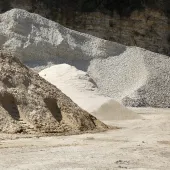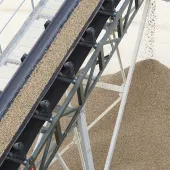Aggregates Levy – Final nail in the coffin?
BDS Marketing Research have issued an independent analysis of trends in aggregates market since 1990, and in particular the effects of the introduction of the Landfill Tax in 1996 and the Aggregates Levy in 2002.
The report, which was prepared for the British Aggregates Association BAA, concludes that the Aggregate Levy has not had a discernible effect in decreasing primary aggregate use but has created serious market distortions.
For example, UK precast concrete manufacturing has been put at a competitive disadvantage by imported concrete products, which have more than quadrupled since the Levy was introduced. Although imported aggregates have to pay the Levy, the aggregates within imported concrete products do not.
In addition, BDS also found evidence of increased road miles for Levy-exempt aggregates – together with an increased carbon footprint – and growing stockpiles of quarry by-products that can no longer compete in a skewed market.
The report also highlights the low earning potential of the Levy as the public sector uses over half of all aggregates consumed.
The BAA says publication of the report is especially opportune at a time when the output of quarries has fallen dramatically due to the financial crisis, and even supplies of grit for ice-bound roads are subject to the Levy.
‘The publication of this report is timely as we await the long-overdue decision [on the Aggregates Levy] from the EU General Court,’ commented British Aggregates Association director Robert Durward.
‘Despite the higher Court (European Court of Justice) finding against the UK Treasury in December 2008, the Government seems intent on collecting every last penny from its deceitful and damaging stealth tax.’
The BDS Marketing Research report can be found in the documentation section on the BAA website.









